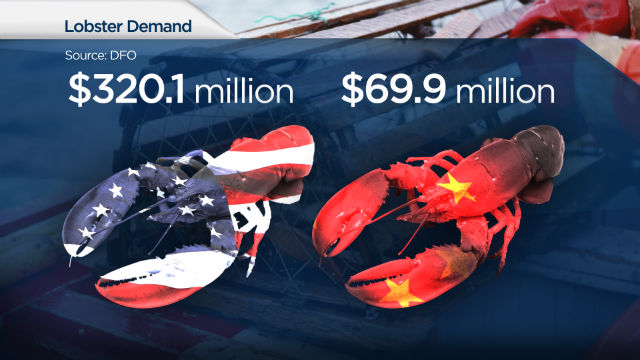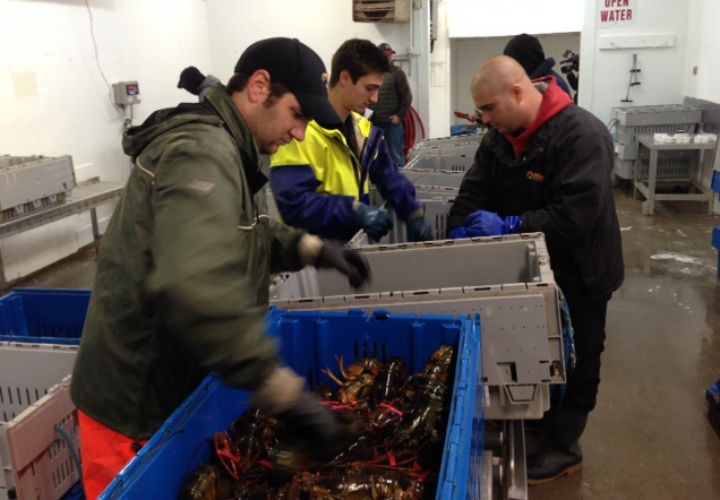Watch: There is a massive increase in appetite for Atlantic lobster. While the United States is the main customer, China is quickly catching up thanks to the online shopping network Alibaba. Ross Lord explains.

At the Capital Seafood International plant, in Eastern Passage, N.S., there’s a new sense of purpose in the air . Workers sort through crate-after-crate of lobsters, fresh from the Bay of Fundy, grading them to make sure they’re fit for the plant’s new target market — China.
“A grade” shouts a worker, suggesting the ones he’s testing are hardy enough to last the approximately 50 hours it takes to be shipped from the plant to their final destination in China.
“The market size for U.S, Europe, the rest of the world, pretty much in the past four or five years, has remained the same,” said Jack Lui, president of North American operations for ZF Max International. ZF Max International bought the plant to satisfy China’s growing hunger for Atlantic lobster.
READ MORE: Harper, China ink array of deals
Lui, who announced his acquisition of the plant last month, is based in Oakville, Ont., but, made one of his frequent trips to the plant on Thursday.

Get breaking National news
“It’s gonna help us organize, big picture, efforts to bring more lobster to China,” he told Global News.

Lui is so confident in the Chinese market, he plans to turn the plant into a year-round operation and triple production to 10 million pounds-a-year. Early indicators are promising.
Last week, ZF Max sold 90,000 pounds of Nova Scotia lobster to China, online through the Alibaba website — known to some as the Chinese version of Amazon.
READ MORE: Head of China’s Amazon wants to sell 200,000 Canadian lobsters on his site
Reg Hartlen, who is the plant’s former owner who still manages it, said it adds up to jobs.
“With the demand, we’ve hired 16 new positions in the last month and we’re looking to employ probably another 10,” he said.
While there is a growing demand, expanding the Chinese market might not be easy. The logistics alone of shipping live lobsters halfway around the world are a continual challenge.
But, ZF Max is charging ahead, investing in larger holding facilities in Nova Scotia and China, growing its’ sales force and looking for inventive ways to sell China’s growing middle-class on lobster.
“We developed different recipes and we put the video clip on a memory stick and we pass on to consumers to grow the market,” said Lui.
The success or failure of ZF Max in Nova Scotia won’t dictate the fortunes of the entire lobster industry.
But, more success in China could mean easing a recent glut of Atlantic lobster and help reverse low prices that have caused some fishermen to consider new careers.








Comments